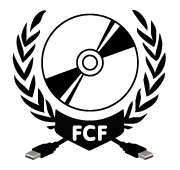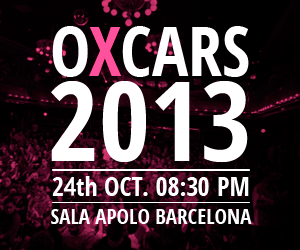Participants
DatAnalysis15M-Óscar Marín Miró | Diego Garzia | informa’t! BCN | Jaron Rowan | Javier Creus | José David Carracedo | Justo Carracedo | Nathan Freitas | Open Knowledge Foundation Spain-Karma Peiró | Sergio Salgado | Stefan Blasel | Virus Editorial-Rubén Martínez Moreno | X.net | Yolanda Quintana
DatAnalysis15M
DatAnalysis15M is a transdisciplinary research group made up of people from a diverse range of spheres, such as digital activism, technopolitics, data science, complex system and network theory, cognitive sciences, sociology and psychology. It emerged from the intersection of a series of researchers and research centres including the Communication and Civil Society Programme at IN3, the Barcelona Media Foundation and working groups such as Outliers.
Óscar Marín Miró
Telecom Engineer, working and researching since 2001 in what we now call ‘Big Data’. Focused on text and social network analysis, urban data and data visualization. Founder of Outliers Collective, aimed at fostering the value of data into as many fields as possible (Science, Journalism, Urbanism, Sociology, Marketing…). Member of the the transdisciplinary research team DatAnalysis15m, working on the relationship between a message viral propagation and its emotional content. He also teaches regular courses about data analysis and visualization in several Universities, Companies and Institutions (UOC, UAB, Telenoika Audiovisual Community, Convent de Sant Agustí, Telefónica Digital).
Diego Garzia
Diego Garzia is a Jean Monnet post-doctoral fellow at the Robert Schuman Centre for Advanced Studies, European University Institute, Florence. The long-term focus of his research is on the drivers of voters’ choice in Western Europe. He is particularly interested in the personalization of politics and its effects on voting behavior at the individual level. His actual research project investigates the potential of internet-based Voting Advice Applications (VAAs) to affect users’ political behavior and counterbalance in turn the perils inherent to the growing personalization of contemporary democratic politics.
He is author of Personalization of Politics and Electoral Change (Palgrave Macmillan, 2013)
informa’t BCN
Movement for citizen’s information which through a series of lectures, intended to provide access to sources of information to raise awareness about what can be done and how to face the crsis. They firmly believe that the health of a democracy is the ability of the public to be informed and that only in conditions of information and symmetry can be possible the free exercise and responsible political participation. Collaborate in spreading FCForum.
Jaron Rowan
Jaron Rowan is a researcher and cultural agitator who combines research and teaching. He co-founded Yproductions and was one of its members for ten years. He also forms part of the Free Culture Forum and the research project Empresas del Procomún. He is currently the coordinator of the art department at BAU, Design College of Barcelona and was previously a tutor and lecturer in the MA in Cultural Industry at Goldsmiths University of London. In 2010 he wrote the book Embprendizajes en cultura, published by Traficantes de Sueños, in which he offers a critical overview of the major entrepreneurship promotion programmes that are currently being implemented in Spain and evaluates some of their consequences.
Javier Creus
Javier Creus is the founder of Ideas for Change, a strategic think tank with clients that include Telefónica, Fundeu, Open University of Catalonia, the Basque Government and Barcelona City Council. He is considered to be one of the key strategists and leading thinkers in the fields of collaborative economy, open and P2P business models, citizen innovation and the network society in Spain. He has worked as a freelance strategic planner for many of the most creative agencies in Spain, co-founded the Digital Mood incubator and @kubik multidisciplinary space, and taught marketing at ESADE.
He is a co-author of “We Are Not Ants” and a regular contributor to Yorokobu magazine. An active member of the Open Knowledge Foundation, Ouishare, the School of the Commons, and Mlove.
José David Carracedo
Since 1998, José David Carracedo has been studying the Internet from a sociological perspective. His initial research focused on computerised data processing procedures and data surveillance, and led to the creation of a multidisciplinary project to develop an anonymous credit card. While he was a postgraduate student in 1999, he was hired by the University of California, San Diego, to study the phenomenon of the digital divide, which was almost unknown at the time. Once back in Spain, he studied the workings of social movements through the Internet and analysed electronic voting dynamics and digital democracy.
Justo Carracedo
Since 1983, Justo Carracedo has been part of a team of researchers working in the field of Telematic Systems and Protocols. He has participated in R&D projects for protocol development at almost all levels of the OSI Model. He has also directed several Network Security projects at the Spanish and European level since 1991, including Cost 225 (Secure Communications), which he chaired in its last stage, EDISE (a PASO ESPRIT project on EDI and e-mail security), ISAT (security infrastructures), TIPI (secure transactions using smart cards) and SAMVA (secure web access using smart cards). More recently, he has been working on advanced telematic applications that require anonymizing services based on research from the Telematic and sociopolitical fields. His work along these lines includes participating in the VOTESCRIPT (electronic voting using advanced cryptography) and DEPARTIR (secure infrastructures for Digital Democracy) projects.
Nathan Freitas
Nathan Freitas is a lifelong technology enthusiast whose career has spanned academic research, the design of popular consumer devices, award-winning digital artworks, and innovative technology for activism. He is a member of The Guardian Project, an initiative that develops open source software for Android in order to offer more secure communications.
Open Knowledge Foundation Spain
The Open Knowledge Foundation (OKF) is a non-profit organisation founded in 2004 to promote open data and open content in all their forms – including government data, publicly funded research and public domain cultural content. The Foundation is an international leader in its field, with extensive experience in building tools and developing communities around open material. Its software development work includes some of the most innovative and widely acclaimed projects in the field.
Karma Peiró (on behalf the Spanish Chapter of the OKF)
Karma Peiró is a digital journalist. Throughout her career she has investigated new media through the Internet, and presented her research to her audience through accessible and informative channels such as the “Bits de nit” and “Tal dia farà un any” shows on Catalunya Radio. She teaches in the Digital Journalism degree and the Advanced Journalism Masters programme at the Universitat Ramon Llull in Barcelona. She is the coordinator of Data Journalism in the Spanish chapter of the Open Knowledge Foundation (OKFN) and co-organised the 1st Data Journalism and Open Data Conference (#jpd13) that was held in Barcelona and Madrid from May 24 to 26, 2013.
Stefan Blasel
Stefan Blasel is a researcher and expert consultant in environmental technology, online research and digital documentary. He is a co-Eco administrator in Barcelona and a member of the Transition Barcelona network and the Cooperativa Integral Catalana (CIC). Through Transition Barcelona, he promotes a local currency that was created by a permaculture teacher in central Germany in 2010 and is currently used by two Transition Barcelona regional groups.
Virus Editorial
Virus editorial is a self-managed publishing and distribution project. It was founded in 1991 in order to generate frameworks of cooperation and mutual support outside of the cultural industry, but also to supply conventional bookshops with critical texts that would otherwise remain unknown to a majority of readers. Since it began, Virus has published texts such as Manual de guerrilla de la comunicación, Ciberactivismo, El lado oscuro de Google, and the Spanish translation of books such as The Assault on Culture. In the last ten years, it has supported the use of free licences, in keeping with its commitment to promote the communal spirit that has defended Virus since its origins.
Rubén Martínez Moreno
Member of ZZZINC, cultural innovation lab, and the Barcelona Metropolitan Observatory, a research collective space on urban policies in Barcelona. Master in Political Science, currently makes his doctoral thesis on social innovation policies at the Institut de Govern i Polítiques Públiques (IGOP) at UAB and is part of IGOPnet area of the internet, politics and commons of IGOP.
X.net
X.net, ex EXGAE, “alma mater” del Foro de Cultura Libre de Barcelona, es una organización sin ánimo de lucro que nace del deseo de un grupo de asociaciones e individuos de poner en común modos alternativos de crear, entender y producir cultura totalmente distintos de los impuestos por la industria del entretenimiento y las entidades de gestión de derechos de autor.
X.net trabaja en cinco frentes: ofrecer asesoría legal con abogados especializados; analizar la situación social y política y diseñar propuestas de intervención legislativa; organizar eventos culturales dirigidos a “normalizar” la producción cultural libre y darla a conocer al público en general; amplificar la potencia de redes nacionales e internacionales, promoviendo y armonizando las capacidades de cada nodo, y crear campañas virales.







